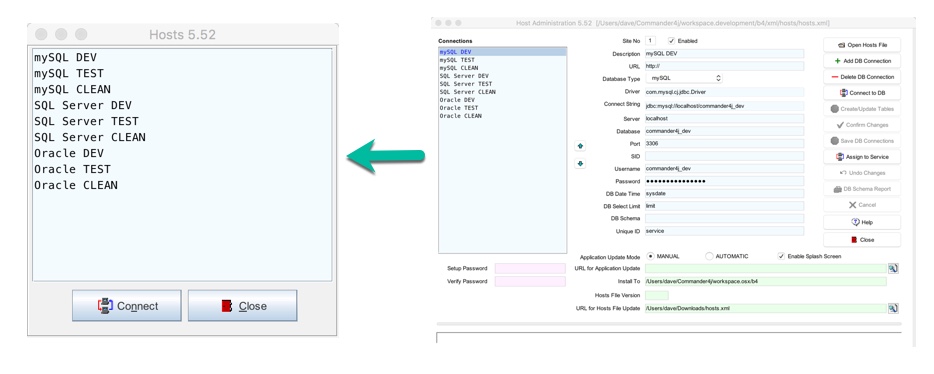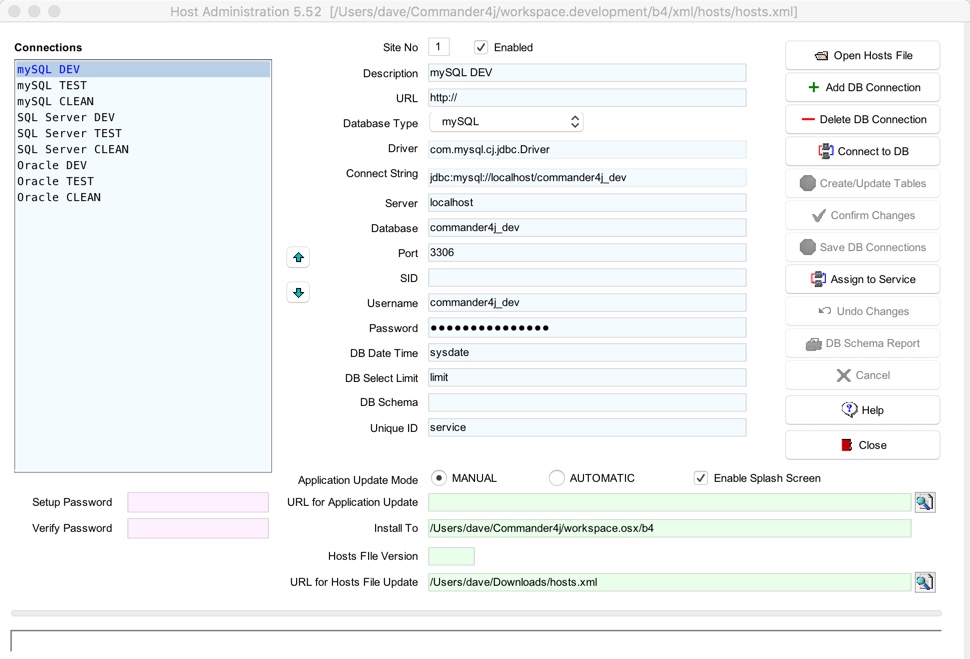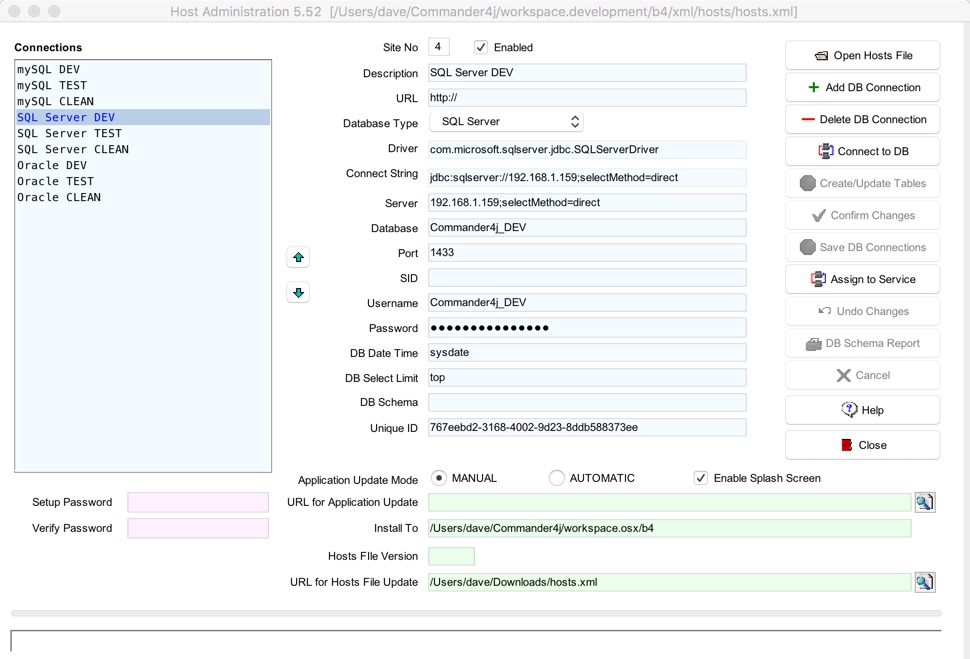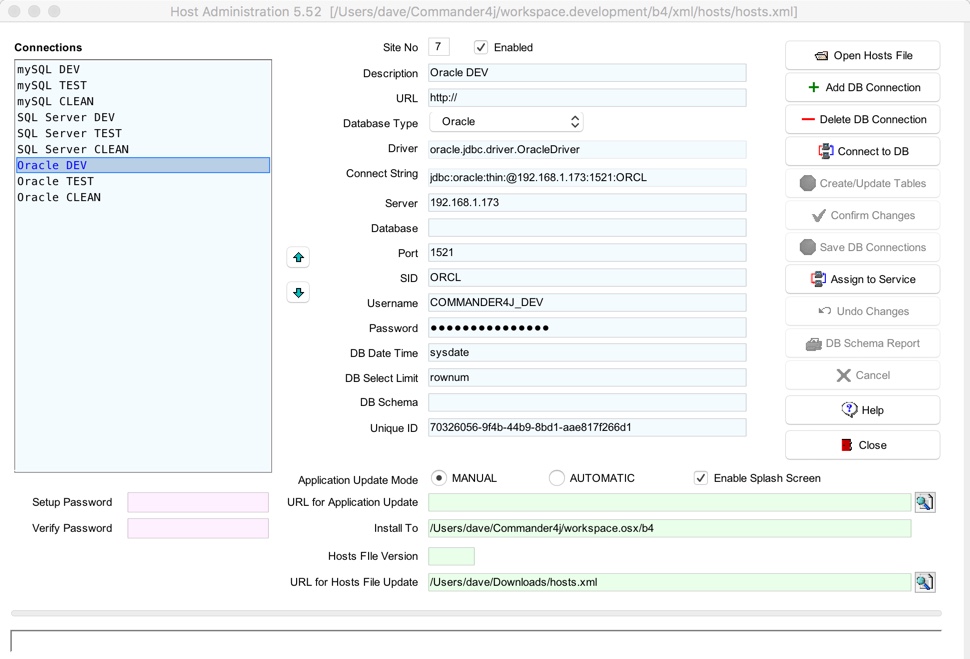Difference between revisions of "Setup4j"
| Line 9: | Line 9: | ||
[[File:host_selection.jpg]] | [[File:host_selection.jpg]] | ||
| − | + | The Setup4j will be needed to create the initial database when installing for the first time. It will also be used when upgrading to a new version of the application. | |
| − | + | ||
| − | + | ||
| + | The example hosts file which is installed during installation is purely for illustration purposes. You should create your own entries which point to your own database(s). | ||
| + | |||
| + | Below are 3 sample host configurations. One for each database type which is supported. | ||
| + | |||
| + | |||
| + | '''mySQL''' | ||
[[File:Setup4j_mysql.jpg]] | [[File:Setup4j_mysql.jpg]] | ||
| + | '''Microsoft SQL Server''' | ||
[[File:Setup4j_mssql.jpg]] | [[File:Setup4j_mssql.jpg]] | ||
| + | '''Oracle''' | ||
[[File:Setup4j_oracle.jpg]] | [[File:Setup4j_oracle.jpg]] | ||
Revision as of 08:47, 3 May 2018
The Setup4j utility allows you to setup the database you want to use with Commander4j. The application supports 3 types of database
- mySQL
- Microsoft SQL Server
- Oracle
In addition to creating the tables needed for Commander4j the Setup4j also creates a file called hosts.xml which is loaded at startup and displays a menu to allow you to select which database you want to connect to.
The Setup4j will be needed to create the initial database when installing for the first time. It will also be used when upgrading to a new version of the application.
The example hosts file which is installed during installation is purely for illustration purposes. You should create your own entries which point to your own database(s).
Below are 3 sample host configurations. One for each database type which is supported.



